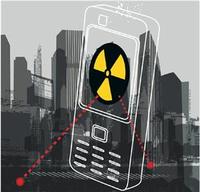-
Near economic collapse, Iran tries to buy time for its nuclear weapons program
From the Iranian perspective, talks and negotiation are meant to achieve only one goal: buy the Iranian nuclear weapons program more time – time that can be used to enrich more uranium, enrich uranium to a higher level, conduct more ballistic missile tests, and refine nuclear war-head designs; this Persian bazaar-like approach to negotiations increasingly runs up against the ever-more-dire economic reality in which Iran finds itself in as a result of the tightening sanctions imposed on the country because of its recalcitrance
-
-
Nuclear weapon simulations show performance in molecular detail
U.S. researchers are perfecting simulations that show a nuclear weapon’s performance in precise molecular detail, tools that are becoming critical for national defense because international treaties forbid the detonation of nuclear test weapons
-
-
Talks with Iran: window for peaceful resolution closing
The second round of talks between the five permanent members of the Security Council plus Germany and Iran over the military dimensions of Iran’s nuclear program opened yesterday in Baghdad; the time frame for the talks between the six powers and Iran is tacitly accepted by all sides: if the current round of talks fails, and the harsher sanctions on Iran, which go into effect on 1 July, do not persuade Iran, by the end of the year, to cease and desist its nuclear weapons activities, then the path will be clear for a military attack on Iran – by Israel, the United States, or both – sometime during the first three or four months of 2013
-
-
Detecting a North Korea nuclear test
The monitoring tools that scientists have available to them to detect a nuclear test have improved in quality and quantity since North Korea last tested a nuclear weapon in 2009; the Comprehensive Test Ban Treaty Organization (CTBTO) has a total of 287 detection facilities available, consisting of 157 seismic monitoring stations, forty-five infrasound stations, sixty-five radionuclide stations, and ten hydroacoustic stations
-
-
Study looks at an unexamined component of the nuclear age: nuclear engineers
On the twenty-sixth anniversary of the Chernobyl disaster, a new study of nuclear engineers has shown how they were shaped by secrecy and the shifting goals of nuclear research; first defined by the Second World War’s Manhattan Project, these engineers marked out a new field
-
-
Threat of imminent Israeli, U.S. attack on Iran appears to recede
The New York Times reports today that analysts inside and outside the Obama administration believe that there is less likelihood now – relative to how things looked in the winter — that either Israel or the United States would launch a military strike against Iran’s nuclear facilities. The reasons: the economic sanctions on Iran are slowing the Iranian economy, with more draconian sanctions coming in July; the mood in the first round of talks between Iranian and Western representative, who met in Ankara two weeks ago, was positive, and there is some optimism that the next round, to be held in Baghdad in a month time, may yield Iranian concessions on the issue of uranium enrichment; also, there is a growing schism in Israel between, on one side, political leaders – namely, Prime Minister Benjamin Netanyahu and Defense Minister Ehud Barak – and, on the other side, both former and current military and intelligence officials about the wisdom of attacking Iran now, before diplomacy and tough sanctions have been given a chance.
-
-
Sanctions unlikely to affect Iran’s nuclear aim
The likelihood of economic sanctions persuading the Iranian leadership to abandon its quest for nuclear weapons is very low; the record of economic sanctions is not good: long-standing international sanctions remain in place against North Korea, Ivory Coast, and Somalia without noticeable effects on their policies; embargoes against Serbia and Libya ended, as with Iraq, only after military intervention forced change
-
-
Fusion presents low proliferation risk
American researchers have shown that prospective magnetic fusion power systems would pose a much lower risk of being used for the production of weapon-usable materials than nuclear fission reactors and their associated fuel cycle
-
-
A nuke blast in D.C. would not destroy city: report
A study finds that a 10-kiloton bomb detonated in Washington, D.C. would destroy many buildings and kill many people, but it would not completely destroy the city; says one expert: “If you are thinking about (a city) being wiped off the face of the earth, that’s not what happens”
-
-
Nuclear summit focuses on terrorist nukes

The Seoul nuclear summit focused on the risk of nuclear terrorism; there are two risks: first, fissile materials, which terrorists may use to construct a dirty bomb, is kept at thousands of medical, research, and industrial facilities around the world – often without sufficient security; second, constructing a Hiroshima-type bomb is not as difficult as we may think
-
-
U.S, Israel employ shady organization against Iran

Analysts have concluded that the United States and Israel may be in a strategic alliance with a former left-wing Iranian political group instrumental in the 1979 Islamic Revolution and the overthrow of Shah Rezi Pahlavi; the purpose of the alliance is to destabilize the current regime in Iran
-
-
Breakthrough in next gen nuclear detectors

Researchers have long struggled to develop radiation detectors that can spot a nuclear device hidden away in a shielded case, but a recent breakthrough could change all that
-
-
Scientists develop a dirty bomb detection system
As part of a £3 million international project funded by the European Commission, scientists at the University of Liverpool are developing a mobile detection system for nuclear materials that could prevent the construction of atomic weapons and dirty bombs
-
-
Monitoring nukes with social media

Acting Undersecretary of State for Arms Control Rose Gottemoeller is actively trying to find a way to incorporate social media tools to prevent nuclear weapons proliferation and keep fissile materials out of the hands of terrorists; the department wants to have crowdsourcing tools developed that could help ordinary citizens monitor a government’s nuclear activity and whether it was adhering to its stated promises
-
-
DHS secretary expresses “concerns” over Iranian threats

Following recent attacks on Israeli officials overseas thought to be perpetrated by Iran and its proxies, DHS secretary Janet Napolitano expressed her concern over potential threats from Iran to domestic targets; speaking before a House panel, Fox Newsreported, Napolitano said the potential for an Iranian attack is “a situation that bears watching.”
-
- All
- Regional
- Water
- Biometrics
- Borders/Immig
- Business
- Cybersecurity
- Detection
- Disasters
- Government
- Infrastructure
- International
- Public health
- Public Safety
- Communication interoperabillity
- Emergency services
- Emergency medical services
- Fire
- First response
- IEDs
- Law Enforcement
- Law Enforcement Technology
- Military technology
- Nonlethal weapons
- Nuclear weapons
- Personal protection equipment
- Police
- Notification /alert systems
- Situational awareness
- Weapons systems
- Sci-Tech
- Sector Reports
- Surveillance
- Transportation
Advertising & Marketing: advertise@newswirepubs.com
Editorial: editor@newswirepubs.com
General: info@newswirepubs.com
2010-2011 © News Wire Publications, LLC News Wire Publications, LLC
220 Old Country Road | Suite 200 | Mineola | New York | 11501
Permissions and Policies
Editorial: editor@newswirepubs.com
General: info@newswirepubs.com
2010-2011 © News Wire Publications, LLC News Wire Publications, LLC
220 Old Country Road | Suite 200 | Mineola | New York | 11501
Permissions and Policies
